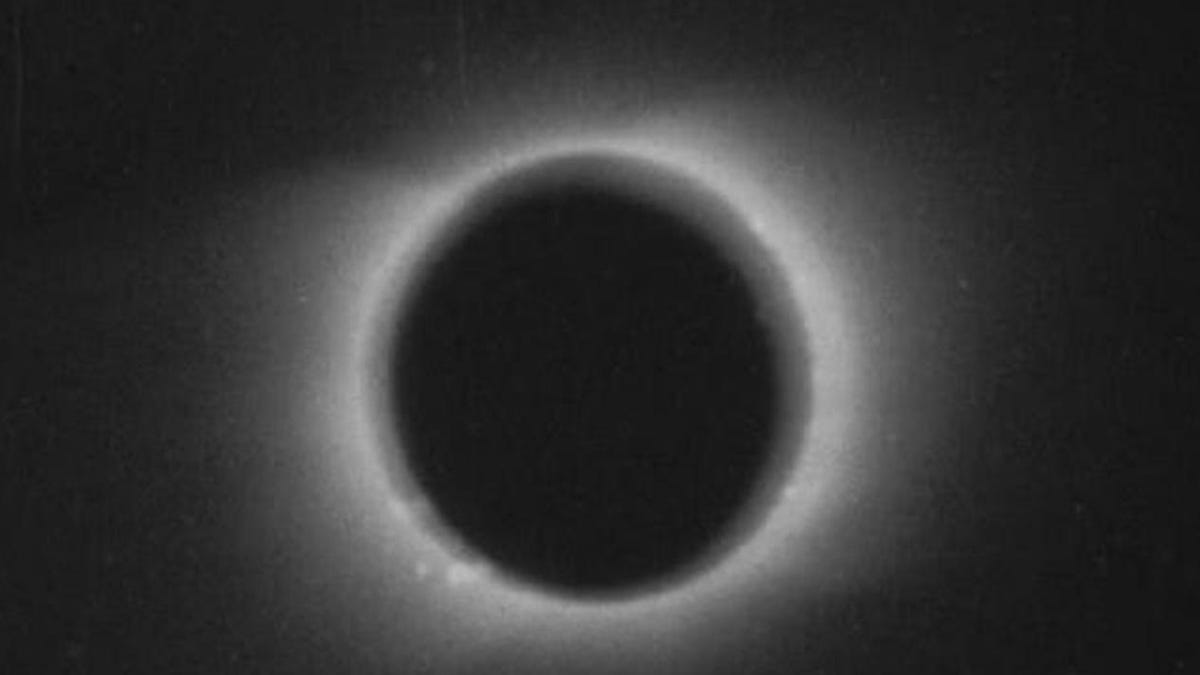See the restored film of a solar eclipse from 1900
A short movie captured by a Victorian magician appeared to be lost. But it's now reappeared, and in 4K even.

Still frame from Nevil Maskelyne's footage of a solar eclipse, filmed in North Carolina on May 28, 1900.
On May 28, 1900, North Carolina was one of the best sites to take in a total solar eclipse, drawing scientists and other skywatchers from the Smithsonian and around the world. Among them was a British magician and early filmmaker named Nevil Maskelyne who managed to capture what's probably the earliest moving picture of such an event.
Now, over 119 years later, the Royal Astronomical Society has released the below restored footage captured by Maskelyne that day. A fragment of the film was rediscovered among the society's archive and then scanned, reassembled and retimed frame by frame to be fully restored in 4K with help from the British Film Institute National Archive.
"Perhaps the oldest surviving astronomical film, it is a really striking record of both early cinema and late Victorian eclipse observing," Dr. Joshua Nall, chair of the RAS Astronomical Heritage Committee, said in a Thursday release.
To film the moon's shadow slipping across the sun, Maskelyne created a special telescopic adapter for his camera. According to the BFI, this is his only film known to have survived.
Maskelyne's interests in magic paralleled his pioneering work in film, with both relying on the state-of-the-art tech of the age.
"Film, like magic, combines both art and science," said BFI silent film curator Bryony Dixon. "Harnessing 21st century technical magic, this 19th century attraction has been reanimated. Maskelyne wanted a novelty to show at his magic theatre -- what better than the most impressive natural phenomenon of them all?"

